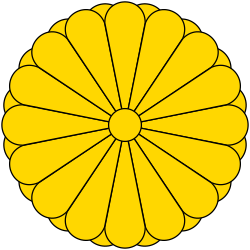1904 Japanese general election First party Second party Third party Leader Saionji Kinmochi Ōkuma Shigenobu Party Rikken Seiyūkai Kensei Hontō Kōshin Club Last election 45.42%, 175 seats 26.63%, 85 seats 4.51%, 31 seats[ a] Seats won 133 90 39 Seat change Popular vote 217,691 170,319 55,709 Percentage 33.47% 26.19% 8.57% Swing Fourth party Fifth party Sixth party Party Jiyu Club Mumei Club Teikokutō Seats won 18 25 19 Seat change new new Popular vote 31,772 31,197 27,244 Percentage 4.89% 4.80% 4.19%
General elections were held in Japan on 1 March 1904.[ 1] [ 2] Rikken Seiyūkai party remained the largest in the House of Representatives , winning 133 of the 379 seats.
The 379 members of the House of Representatives were elected in 51 multi-member constituencies based on prefectures and cities. Voting was restricted to men aged over 25 who paid at least 10 yen a year in direct taxation.[ 3]
Party Votes % Seats +/– Rikken Seiyūkai 217,691 33.47 133 –42 Kensei Hontō 170,319 26.19 90 +5 Kōshin Club 55,709 8.57 39 +8 Jiyu Club 31,772 4.89 18 New Mumei Club 31,197 4.80 25 New Teikokutō 27,244 4.19 19 +2 Others 116,419 17.90 55 0 Total 650,351 100.00 379 +3 Valid votes 650,351 99.12 Invalid/blank votes 5,777 0.88 Total votes 656,128 100.00 Registered voters/turnout 762,445 86.06 Source: Mackie & Rose, Voice Japan




 French
French Deutsch
Deutsch

